Höhne, Niklas und Julia Pongratz. "Das Global Carbon Budget 2024". Science Media Center. November 13, 2024. https://www.sciencemediacenter.de/... (Contributed by Gregory Autin).
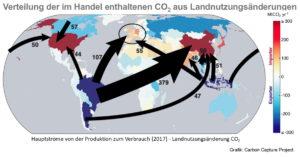
Der jüngste Bericht „Global Carbon Budget 2024“, der in dem Fachjournal Earth System Science Data erschienen ist, zeigt, dass die weltweiten CO2-Emissionen aus fossilen Brennstoffen im 2024 ein Rekordniveau erreichen werden. Verursacht durch fossile Brennstoffe aus Verbrennungsmotoren aller Art und der Landwirtschaft, stieg das globale Kohlenstoffbudget um 0,8 Prozent gegenüber dem Vorjahr. Die Aufnahme von Treibhausgasen durch natürliche Kohlenstoffsenken wie Ozeane und Wälder gleicht dies nur teilweise aus. Je höher die Temperaturen sind, desto weniger können beide Systeme aufnehmen. Besonders deutlich wird dies bei den Wäldern, wo die Wiederaufforstung bei weitem nicht ausreicht, um die Abholzung zu kompensieren. Nichts deutet darauf hin, dass der Höhepunkt bereits erreicht ist.
Posted on 13/11/24
Recent Abstracts
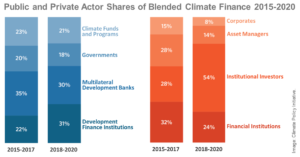
Making the Business Case for Climate Smart Investments: Guidelines for the Tourism Sector
The transition of tourism to net-zero emissions will require significant investment and innovation by the businesses and other stakeholders. UNEP recently launched this initiative to support the urgent transition, which is aimed to address challenges that the private sector faces in financing climate mitigation actions ...
Posted on 19/02/22
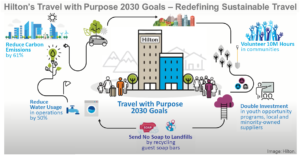
Destination 2030: Global Cities’ Readiness For Tourism Growth
City planning authorities, developers, investors, legislators, and community groups have to collaborate to prepare cities for growth in tourism. Decision-makers create long-term plans involving all stakeholders, where local residents must be at the heart of the infrastructure developments and investments. The decisio ...
Posted on 18/02/22
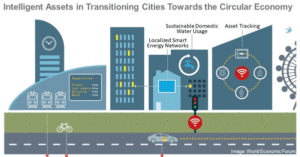
Circular Cities: An Evidence Map of Research between 2010 and 2020
Cities are increasingly transitioning towards the circular economy (CE). They are moving towards a sharing economy and implementing CE strategies to reduce their use of resources and environmental impact. The efforts of municipalities concentrate chiefly on the "lower-level" waste and wastewater management and recycl ...
Posted on 16/02/22
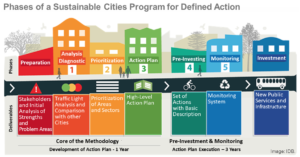
The SDGs in Austrian Cities: A Comparison between 2017 and 2021
Cities play a key role in implementing the UN Sustainable Development Goals (SDGs) and need clear roles and responsibilities on regional policy issues. Transparency, sufficient access to information, and coordination between all stakeholders in the sustainable development of communities are required for the cities to ...
Posted on 14/02/22
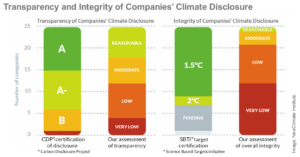
Corporate Climate Responsibility Monitor 2022
Most large companies now have public climate strategies and targets, many of which include pledges that appear to significantly reduce or even eliminate their contributions to global warming. The acceleration and spread of corporate climate pledges makes it increasingly difficult to distinguish between true climate le ...
Posted on 12/02/22
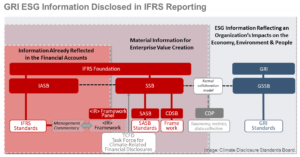
A Business Case for Environment & Society
The need for standardized, comparable information to enhance decision-making by shareholders and stakeholders has accelerated with the great increase in ESG investments, rankings, and exchange-traded funds. Sustainability reporting, which focuses on disclosing companies' environmental, social, and governance (ESG) imp ...
Posted on 11/02/22

Decarbonizing Construction – Guidance for Investors and Developers to Reduce Embodied Carbon
A large part of the construction sector’s emissions come from building products and materials – embodied carbon. Embodied carbon has become the focus of regulatory bodies, making it a risk factor for developers and investors to price into construction projects. This report is for developers and investors, who drive t ...
Posted on 09/02/22
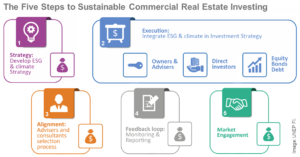
Climate Risk & Commercial Property Values: A Review and Analysis of the Literature
This is a forward-looking climate risk analysis and assessment of the impact of climate risk on commercial property investments through pricing, CapEx or OpEx decisions. The study sought to understand the extent to which real estate markets price in the risks from extreme weather and climate change and the channels th ...
Posted on 07/02/22
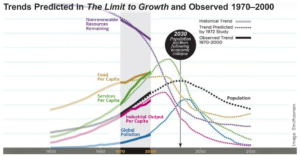
The Real Message of 𝘛𝘩𝘦 𝘓𝘪𝘮𝘪𝘵𝘴 𝘵𝘰 𝘎𝘳𝘰𝘸𝘵𝘩 – A Plea for Forward-Looking Global Policy
The Limits to Growth (LtG) published in April 1972, called for managing the reduction of resources used in economic development. It warned that overshoot will be caused by significant institutional delays in decision-making and showed how the equilibrium between remedial action and ecosystem improvement could be achie ...
Posted on 05/02/22

Building Information Modeling for Environmental Impact Assessment in Early Design Phases: A Literature Review
Building information modeling (BIM) and building energy modeling (BEM) are two key tools for transitioning to net-zero energy buildings (NZEBs). This review discusses the connection between BIM, BEM and life-cycle assessment (LCA) and their role in the development and operation of net-zero carbon (NZC) buildings. It ...
Posted on 04/02/22

Potential Liability of Governments for Failure to Prepare for Climate Change
This paper examines the potential legal liability of governments by accumulating risks of climate change. It addresses negligence, fraud, and takings, describing the benefits and challenges of each, and explores ways to overcome a government’s claim of sovereign immunity in the context of a negligence claim. It descr ...
Posted on 03/02/22
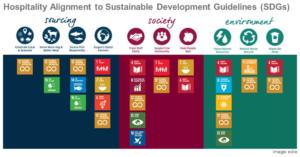
High Performance Hospitality
The cases describe the environmental, social and financial advantages and applications of hotel design, construction, and operations to assist in expanding a high-performance development resources network. They are grouped by category – mid-rate, conference center, and luxury – and cover the resource for the project d ...
Posted on 02/02/22
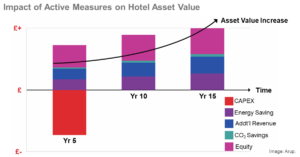
Exploring Green Hotel Competitive Strategies by Using the Hybrid Method for Complex Data Analysis
Green hotels emphasize safety, health, and environmental friendliness. They promote green operations, green consumption, environmental protection, and the reasonable consumption of resources in operations. This study explored the criteria and competitive strategies of green hotels in the development of criteria syste ...
Posted on 31/01/22
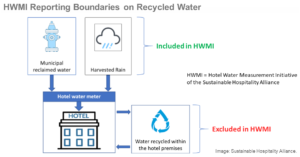
Sustainable Hospitality Alliance
The Sustainable Hospitality Alliance drives collaborative action. It is an alliance of senior executives from hospitality companies and industry partners who collaborate and cooperate on joint areas of action. The alliance develops open resources and programs to enable the wider industry to grow sustainably and opera ...
Posted on 29/01/22
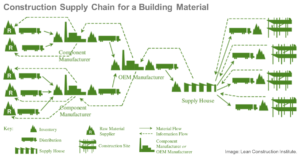
Defining Supply Chain Visibility for Industrial Construction Projects
Visibility is needed in the construction supply chain for sustainable procurement and decision-making. Supply chain visibility (SCV) is essential for on-time delivery and installation of materials and results in more effective supply chain management and improved project ESG performance. For effective communication w ...
Posted on 27/01/22

